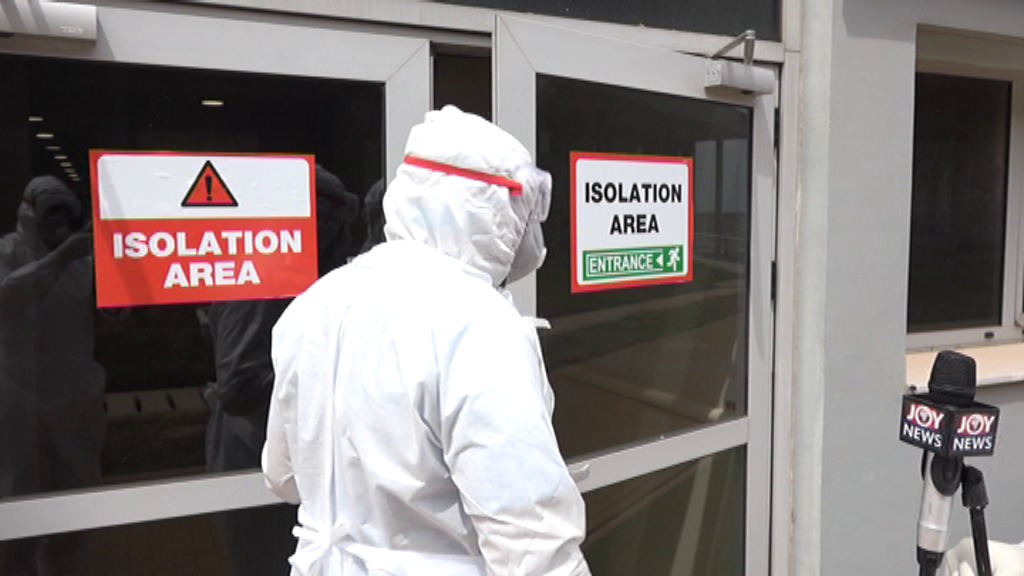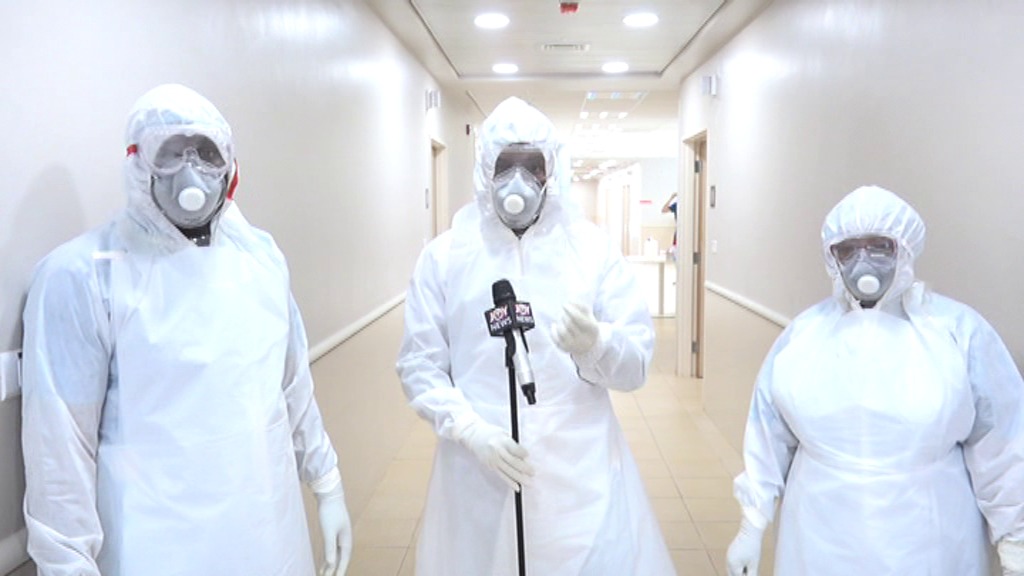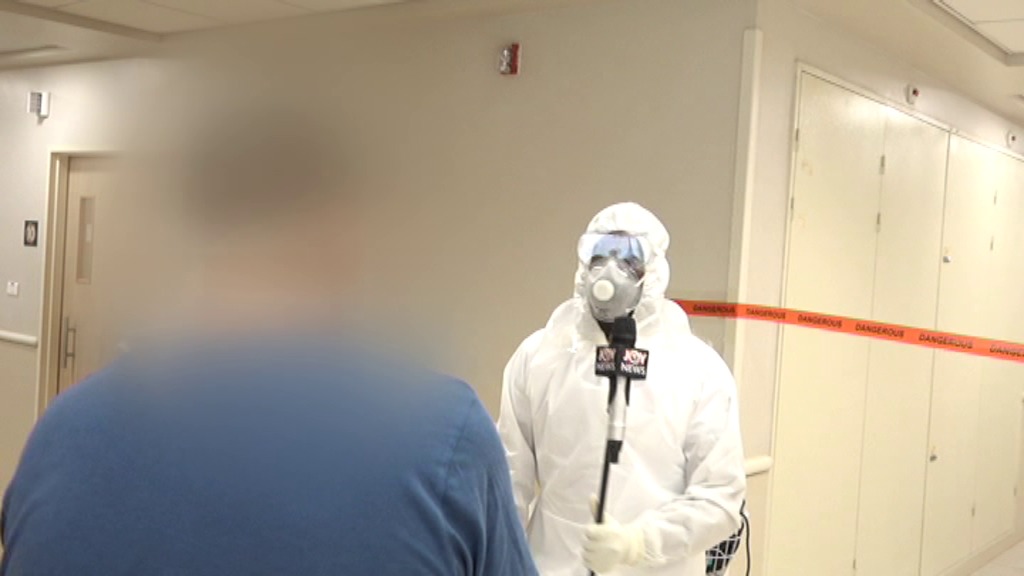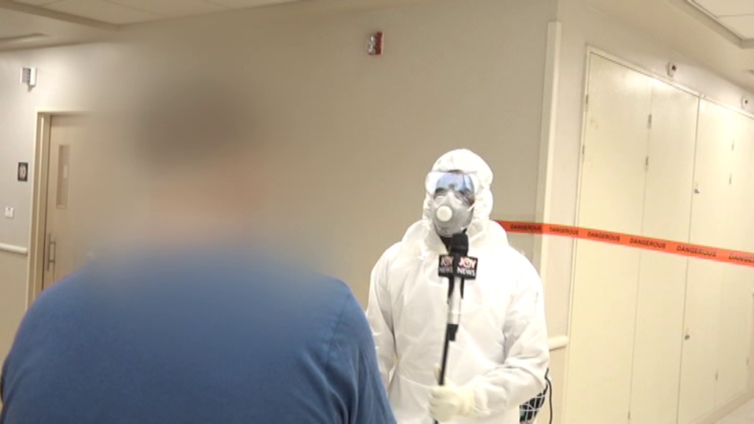I had received a WhatsApp text Wednesday evening April 23, 2020, I was thinking about the launch of an 'app' to help in the Covid-19 fight by the University of Ghana Medical Centre in collaboration with PharmAccess foundation the next day.
Two messages that is; one each from Araba Koomson and Kwaku Owusu Peprah both editors in the Joynewsroom.
I imagine Kwaku Owusu Perprah (KOP) had told editor on shift duty Miss Koomson, I should be assigned because Araba was categorical and direct - Komla, you'll be covering a Covid assignment tomorrow (Thursday, April 24) so prepare.
Well, she did not add the date; that's just me pretending to be meticulous.
The launch of the CovidConnect service and app happened, in fact, it was 'taken live' on JoyNews - even though I was clearly frustrated the feed kept tripping.
I was not too sure where the problem was; whether the camera technician was not up to the beat, or it was clearly a network connectivity challenge or perhaps a matter of fate. I do not know.
So I was uptight. In such hurry to get back to the office to work on the story.
But Kwaku whispered into my ear, "I need you to do this. I'm trying to get some of the doctors to take us on a tour of the treatment facility where some persons with Covid-19 are, so you speak to them. You will be given protective equipment," he said.
I was startled for a moment. With more than a dozen thoughts running through my head; and a ton of 'what ifs'.
It scared me out of my wits; I would not even lie.
I thought about my mother - her husband, their children.
I thought about my colleagues at work.
I thought about these persons battling with the novel coronavirus whom we would meet.
Playback of all the grim scenes from Spain, Italy, the United States of America, quickly flashed through my mind, was I ready to do this?
After 47 seconds… I told him I could do it. And as I said in part of my introductory lines in the documentary - 'that we would demystify all that's being bandied about the about Coronavirus," I thought it was a fine opportunity.
Deep within me, I wasn't too sure.
Donning process
I proceed where these health workers get their personal protective equipment (PPEs) on and in the right way. The two doctors who were to lead us on this tour; Dr Emmanuel Amoah (Pediatrician) and Dr Ama Edwin (Senior Specialist, Bioethics and Palliative Care) ushered us to the 'donning area'.
One after another, they were helped to put on their boots, their overalls, gloves, goggles, masks and everything that was deemed crucial is offering them protection while they went in to offer patient care.
Wait! It was our turn to also don. Following the same procedures and steps and under the supervision of at least three watchers, we donned. It took us at least 40 minutes to do this - and it's for good reason.

My camera technician Sammy Asante could hardly breathe when I asked him. But he was up for this like I was. It brought into focus the crucial role these PPEs play in Covid-19 care.
With Director-General of the World Health Organisation Dr Tedros Ghebreyesus announcing a 'chronic shortage' of PPEs the world over, you can appreciate what the available ones mean to the frontliners in this battle.
Priceless!
Treatment area proper
We shimmied along the pathway amidst little conversations and through the door that leads into the treatment area proper.
Number 9, 6, 12, 15 were engraved on the walls - these are patient room numbers. One of the rooms we peeked in, had everything for two.

Dr Amoah mentioned to me, it is just one of the many rooms for persons with Covid-19 undergoing hospital management. A couple was admitted here. There are even rooms to admit three - probably a family of Covid-19 positive persons.
18 patients undergoing care here were only discharged days before we visited. They had two negative tests and were fine to go home. They had recovered.
Only eight patients were still here being managed.
About two hundred meters from where we were - Dr Ama Edwin could be seen speaking to a lady, spotting what looked like locked hair from where I was.
Dr Edwin was talking her into granting us an interview. Not far from them another man waltzes across the alley.
As we approached them - it looked clearer now, they wore sky blue nose masks and one of them had in their hand, a pack of drugs.
I kept looking over my shoulders whenever I guessed I had heard semblance of footsteps from behind me…
It was relatively quiet - only the sound of drumming equipment could be heard amid remote chatters and slams from inside the other admission rooms.
'Welcome to the treatment area Komla, we have two of our patients who have agreed to talk to you," Dr Edwin said to me, while I was still getting my camera technician prepped over how the filming was to be done.
My face lit with a pleasant glow - in a reassuring attempt; I wonder if I was successful at that - but yeah, I was pleased to meet the two.
I choose to call them - Akai and Polo.
I looked very closely at them, a quick thorough visual scan. I wonder what I was looking out for.
But there I stood, before them, and ready to ask them a few questions, with full respect to their sensibilities and privacy.
Another person from one of the rooms we stood in front of, opened the door calling out Akai…"…the phone…the phone…I could hear the female voice shout'.
"It's the pharmacy… the pharmacy," she yelled while taking a peep through a slightly opened door.
She was right inside our camera shot. She had to be signaled to hang on a while, so Akai could attend to her in a short time.
Interview with two patients
I first started with Polo. He is not Ghanaian - at least from his accent. He stood almost up to my height and look slightly built.
He wore a round neck top over a pair of knickers and a sky blue mask.

'How are you doing', I asked.
Here he said, 'I'm doing very well. Its not been easy but the doctors and the nurses here are doing great and we are getting better."
I was curious about his travel history; whether he'd been on the road in the last month.
"..I have not travelled in four months. I have been in Ghana living my life. '
He was not sure how he contracted the disease. He does not remember coming into contact with an infected person, but he is here.
How did he finally call it in?
"I was breathless. I had some symptoms and I feared it could be covid. My samples were taken for tests. My fears were confirmed. It was positive even though I prayed it should be negative."
I could see his eyes redden while we spoke. A bead of tear clocking both edges of his eyes. I looked straight into them - so I could see it.
He had been brought here five days prior to our visit in a pretty bad condition, he said. But he feels much better now.
You could hear his voice shriek while he spoke.
How is your family taking this.?
"…They are praying for and with me. I know they have been affected by this. But we hope we will get better. This disease is 'seriously serious' - as if to emphasize the severity of the condition and what he was going through!
His one-sentence answers (as journalists dread) were enough. They made the point.
People should take this disease serious and protect themselves.
Its Akai's turn. She looked like someone ready for this. Ooops. It was no surprise when I was told about her profession.
But her answer to my first question, how are you doing? had some shriek too.
"…errrrm I'm ok. We are doing well. The doctors and nurses have been taking care of us and with the help of some drugs we are doing well."
That's almost three sentences for one answer.
"When were you brought here", I was curious to know.
"…Errrrmm a couple of days ago. After my symptoms got worse. I was breathless. I had a cough. I had headache. I had a cold. I had all the symptoms except sore throat", she told me.
At what point were you tested and when did you discover you were COVID positive? I asked the light-skinned lady I suspect could be in her thirties.
"…errrm as for me once I began getting all the symptoms - I just knew it was covid, I am an adventurous person and so when I witnessed these, I began home remedies while I called it in. Four or so days after the symptoms became severe, my samples were taken for the test."
It took only days for the results to be ready, and her fears were confirmed. She was COVID positive!
How did this make her feel?
It was traumatic, she told me.
"…it was scary, but I started self - isolating at home, getting food dropped at my door. Having no contact with my family. The symptoms became significantly worse and I was losing my breath. I was restless at night and a whole lot. So I had to come here and be assisted to breath".
But how are you feeling now and getting through?
"…I am feeling better. Its not been easy. It's been twenty one days since I was COVID confirmed, you can imagine what I have been through. But it is getting better. I also distract myself with family. They keep calling on the phone to check up on you. And ask how you are doing…its been helpful."
With stories of stigma and trauma having been told by some recovered patients on our news programmes - i felt it was okay to ask what she thought about these stories of stigma and discrimination at the hands of community folk, workplace, church etc…
"…such stories make me feel bad. They make me feel really bad, she repeated. Because as I stand here I am scared of what would happen when I finally recover and leave here. How would the community take this. My workplace. It is a scary reality. Maybe the best thing is not to tell many people."
"…the fewer people who know about me, the better I could cope. I wish I could tell them so that they take precaution. So that they will take hygiene protocols seriously. But I cant. For fear of stigma. People should be accommodating. It is not our choice to be COVID positive. And one can recover if the contract covid. "
These were the most chilling things I had heard all year. It did something to me. In a reassuring tone I told here, "you would be fine, this too shall pass…like we say. You would soon get out of here."
For those who still think Covid 19 and the noise around it have been dramatized and exaggerated, maybe you have to see it to know.
Here is what Akai told me when I asked her to give a word to those who feel all this is a big hoax!
"..this disease is real. For those out there thinking it is a joke. It is real. The earlier we took this serious the better. I am a living example. You think 21 days with all these symptoms is easy. ? It has been traumatic. So just take the precautions. Wash your hands. Use a mask. Abide by social distancing protocols…this is a terribly illness I would not wish for anybody…"
That's how the formal session ended. A lot of the back conversations are what they are - back convos.
They two would go and get their medication and while I had a chat with Dr. Amoah, Dr. Edwin attended to them and before long they went into their rooms.
All I heard next was, I'll get them to call you. In an hour or probably two, your drugs will come".
Dr Amoah, Dr Edwin and I would have a three-minute disco right in front of their room before we left.
" So Komla, you see. This is real. And that's why we did this. People must know that there are COVID positive persons in Ghana that we are caring for, so they listen to what we tell them and stay safe, " Dr. Amoah simply told me.
For Dr. Edwin, it was more of a call on families and societies to offer these persons a system of support so they get better and reintegrate.
" Over the period, we've built a community of patients and health care workers and we support each other. And so while they are here, they get that support. Some even after discharge call us to check on us and we keep that communal spirit. It helps in this fight. Not stigma", she said.
It had been more than an hour wearing the full PPEs and struggling to breath. This was not normal for me - but of course for Dr. Amoah and Edwin it is their forte, they know much more.
We leave the treatment area inside the patient tower to a place where a decontamination exercise was to happen.
Decontamination process
Like during the donning process - we would have all the gear we had on, removed in a process called doffing.
But this process is more meticulous and exhausting even than the donning.
The reason is simple!
You would have to be supervised carefully to remove the kits in a way that does not contaminate you; because we had been to the contaminated areas of the treatment facility.
A chlorine bath. Solution concentration of 0.5 to clean our boots….two sessions.
And then a careful removal of gears - interspersed with chlorine rinses - concentration of the chlorine here is 0.05.
Note the difference.
Everything is decontaminated here. Including our equipment. The microphone. The boom stick. The camera. Everything was decontaminated.
What a huge and heavy sigh after it was all done. It was some day.
I have tried to keep my mind in check; so it does not play tricks on me.
I know I can get paranoid sometimes - but this time, it is not the sixth sense I or my camera technician Sammy Asante would want to have!.
In the second part of this piece, I relive the experience inside the Intensive Care Unit of the UGMC, where three severely Ill persons were at the time receiving COVID care.
Latest Stories
-
Sisay Lemma of Ethiopia and Kenya’s Hellen Obiri win Boston Marathon
52 mins -
GPL 2023/24: Accra Lions move to 5th with win over Bibiani GoldStars
1 hour -
Bond market: Turnover tumbles by 52.9% to GH¢336.90m
2 hours -
Brilliant Palmer scores four as Chelsea thrash Everton
3 hours -
Cedi depreciates 9.65% to dollar since January 1, 2024, one dollar equals GH¢13.60
3 hours -
Futsal AFCON 2024: Ghana exits competition after losing to Angola
3 hours -
Ghanaian banks’ profitability to weaken due to new Cash Reserve Ratio regime – Fitch
3 hours -
If physical security cannot be guaranteed, how can election be secured – NDC quizzes EC
5 hours -
Another man jailed eight months over false claims of missing genitals
5 hours -
Youth summit dedicated to environmental education and innovation to take place in Greece
5 hours -
New free, user-friendly platform for tracking marine biodiversity protection now available online
5 hours -
Okoe Boye promises to launch food bank project in Ledzokuku
5 hours -
Bring back inter-schools sports – NSA boss urges GES
5 hours -
Where’s the national cathedral in the performance tracker? – Alex Segbefia asks
5 hours -
Senior Medical Officer urges religious leaders to promote health talks among their followers
5 hours

